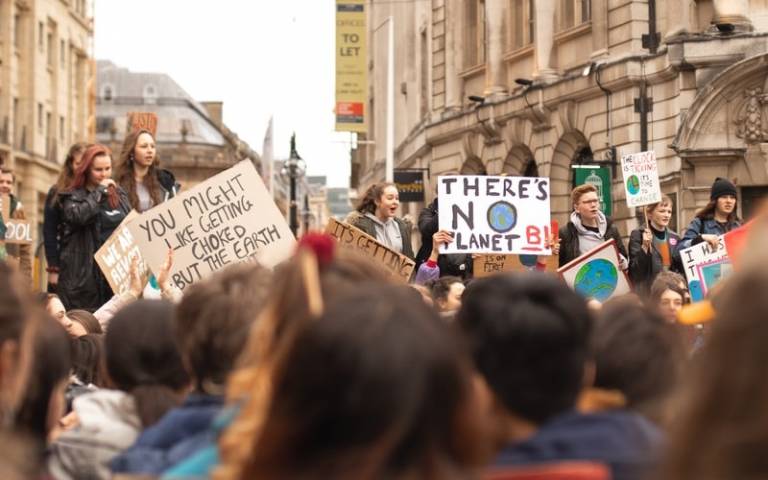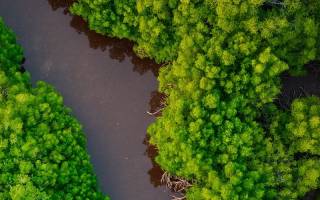Health, Environmental Change and Social Justice - Professor Carolyn Stephens
7 July 2021
Professor Carolyn Stephens (UCL Bartlett and LSHTM) joins us for a discussion on the health implications of climate change and biodiversity loss, and the importance of amplifying the voices of those most affected by rapid environmental change.

In this interview, Professor Carolyn Stephens joins us to discuss the complex interrelationship between health, environmental change and social justice. We talk about the differentiated health impacts of global warming and ecosystem degradation across populations and social groups, with those least responsible for these changes being the most at risk. We also discuss progress made and persisting obstacles to including the knowledge, perspectives and experiences of Indigenous peoples and other disenfranchised populations in governance processes at global, national and local levels. Finally, Carolyn highlights ways in which we can amplify young people’s voices in these processes to ensure that policy and practice is directed at safeguarding their futures.
Professor Carolyn Stephens is Honorary Professor at the UCL Bartlett Development Planning Unit and Module Organiser of the Globalisation and Health MSc Modules at the London School of Hygiene & Tropical Medicine (LSHTM). She is also a Fellow (by distinction) of the Faculty of Public Health Medicine of the Royal College of Physicians and an International Fellow of the Royal Society of Medicine. In addition, Carolyn is a Visiting Full Professor of Ecology and Global Health of the National University of Tucumán (UNT) in Argentina. Carolyn’s interdisciplinary research career has focused principally on exploring the links of environmental change, health, inequity and social justice. She lived and worked in Africa, Asia and Latin America for over 30 years, including most recently in Argentina, where she established the Amazonia-Yungas Observatory for Biodiversity, Indigenous Health & Equity. Carolyn’s work has also involved advising international UN agencies, including WHO, UNEP, UNDP, UNICEF, and UNHabitat. Carolyn is the winner of the Royal Society Kohn Award for Excellence in Engagement of the Public in Science, and the Mayor of London Academic Excellence Award in public engagement.
This is the second part of a GGI interview series featuring “Conversations on the Intersection of Biodiversity, Climate Change and Health.” This interview series forms part of a GGI project on the prospects for “A Shared Agenda for the United Nations Sustainable Development Goals on Biodiversity and Climate Change,” funded by UCL Grand Challenges and the UCL Global Engagement Office.
Further Reading and Resources:
- Aichi Biodiversity Targets (cbd.int)
- CBD (2020) Global Biodiversity Outlook 5 (cbd.int)
- Montenegro, R. A. and Stephens, C. (2006). Indigenous health in Latin America and the Caribbean. The Lancet (thelancet.com)
- Stephens, C. et al (2005). Indigenous peoples' health—why are they behind everyone, everywhere? The Lancet (thelancet.com)
- UN Permanent Forum on Indigenous Issues (UNPFII)
- UN United Nations Declaration on the Rights of Indigenous Peoples (un.org)
- UNDP (2020). The next frontier – Human development and the Anthropocene (hdr.undp.org)
- UNDP (2021). The Peoples' Climate Vote (undp.org)
- UNDP Planetary pressures–adjusted Human Development Index (PHDI) (hdr.undp.org)
- UNICEF (2017). Age Matters! Age-related barriers to service access and the realisation of rights for children, adolescents and youth (unicef.org)
- WHO (2015). Connecting Global Priorities: Biodiversity and Human Health. A State of Knowledge Review (who.int)
- WWF and Institute of Zoology (2020) Living Planet Report 2020 - Bending the curve of biodiversity loss (zsl.org)
- Youth for climate action (unicef.org)
 Close
Close


